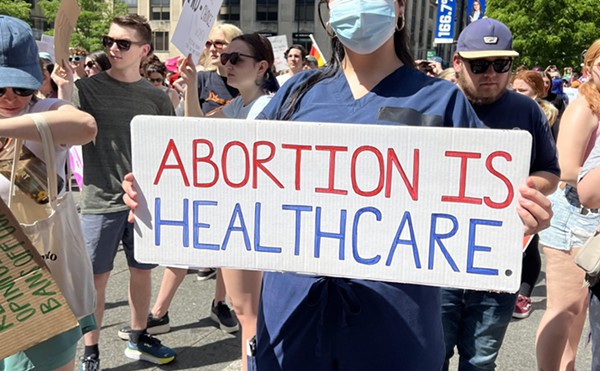Cincinnati police are riding a familiar roller coaster: Will the two officers involved in the latest shooting death be cleared by investigations that are underway? If they are, will they then face disciplinary action from the city manager anyway?
It's happened before. The Fraternal Order of Police (FOP), which represents Cincinnati officers, says it's happening again. And FOP members say they have had enough.
During an April 14 news conference, FOP President Keith Fangman said the FOP is cautioning officers to think long and hard before getting involved in self-initiated crime-fighting activities in situations that do not pose an immediate threat or did not prompt a call for assistance from a citizen.
At issue is City Manager John Shirey's decision to assign officers Brent McCurley and Michael B. Miller II to desk duty. The officers were involved in the March 19 shooting death of Michael Carpenter, who they stopped for having expired temporary license plate tags. The officers told investigators that Carpenter refused to get out of the car, then dragged Miller who had reached into the car and tried to hit the officers with his car.
McCurley had been back on his regular beat for two weeks before Shirey reassigned him.
Why was he returned to street duty while the investigations were pending if the city administration did not approve of it?
Shirey did not return CityBeat's call to answer the question. Gina Ruffin Moore, Shirey's communications officer, said that neither Shirey nor the city's safety director was aware that the officer had been returned to the street.
"There wasn't a policy in place," Moore said.
With the number of times this type of incident has been an issue, how could there not have been a policy in place?
She said she didn't know.
Returning officers to the streets after such incidents has been a source of great attention and controversy since the 1995 arrest downtown of Pharon Crosby, an African-American teen-ager. The incident was partially videotaped by a television news crew and drew heated protest from African-American groups.
Then there was the shooting death in 1997 of Lorenzo Collins, an escaped mentally ill black man who threatened police with a brick.
In the Crosby case, police were cleared by the division's internal investigations section. In the Collins case, police were cleared by seven separate investigations, including investigations by the U.S. Department of Justice.
But Shirey chose to discipline officers in both cases anyway.
In the latest case, Carpenter was African-American. So is Miller, the officer who said he was dragged by Carpenter's car.
"It is best for all parties concerned to not return these officers to regular duty while the investigation is underway," Shirey said in a written statement, faxed to CityBeat after the FOP's news conference. "I want to stress that this is not punitive in any way."
Is it possible that there was no problem with allowing the officers to continue their jobs until Shirey received complaints from African-American groups that are arguing that the Carpenter incident involved police harassment and brutality of blacks and poor people?
No, Moore said.
Keeping the officers off the streets until the investigations are complete simply is the only way to be fair, she said.
Parking Solution 'Will Be Done'
Searching for a parking space downtown these days has turned into something of a grudge match. Downtown residents, workers and visitors all are battling for fewer and fewer spaces.
The city of Cincinnati in conjunction with Downtown Cincinnati Inc. (DCI), nonetheless, recently issued a letter and pamphlet that concluded downtown's parking problems were under control.
But now, DCI has announced that it feels change is needed before the problem gets out of hand.
DCI has been engaged in focus groups to come up with ideas about restructuring the downtown area's visitor parking policies.
The increased parking crunch is a result of several factors, construction being the primary one.
Fort Washington Way construction has caused a lot of parkers to move north of Fourth Street, causing a shortage in the center of the city. The construction of the stadiums also closed several garages that many workers used for daily parking. And just recently, a garage near the center of town was closed to make way for more development projects.
John Schneider, transportation and riverfront development adviser for DCI, said that an annual survey showed that many people are more concerned this year about finding a space than what they will have to pay for one. He also said that focusing on restructuring visitor parking policies could remedy many of the parking problems.
What are the city's current visitor parking policies?
"I think there are a lot of good ones," Schneider said.
In 1993, the city implemented a three-hour-for-$1 rate at its garages, he said. And the city also allowed for 10 minutes free at meters by just turning the knob before putting money in it.
What kind of "restructuring" is being discussed?
"We are pushing for a comprehensive solution," Schneider said. "We want to restructure the Fountain Square garages and meters in the center of the city."
He said the meters are underpriced allowing workers to plug them during their work day and causing visitors to pay high rates in garages for only a few hours.
"We need to raise the meter prices at the core places and radically reduce the meter rates around the perimeter of the city," Schneider said.
Does this mean that maybe things aren't going so great after all?
"I'm saying that things have changed here, but the balance will start shifting," he said. "We want to get back on an even keel and although we might be in a bit of an emergency, it can be done. It will be done."





